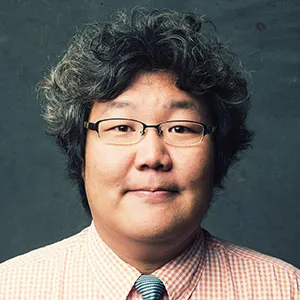
Master of Public Health (MPH)
Earn a Master of Public Health (MPH) at Azusa Pacific University
You’ll graduate ready to plan prevention and wellness programs, analyze health policies, and make a difference for Christ. You’ll gain real-world experience in the program’s field practicum component and set yourself apart in future career and academic pursuits with a capstone project. The program includes a health equity specialization that all students take, in which they choose 9 elective units to customize the program to their public health interests and/or career goals.
MPH Receives 5-Year Accreditation
APU’s Master of Public Health program received the maximum 5-year initial accreditation from the Council on Education for Public Health (CEPH).
Program at a Glance
The School of Health Sciences challenges students intellectually and spiritually while remaining flexible and student-oriented, preparing compassionate experts in the fields of child life, kinesiology, physical therapy, and public health.
Time-Sensitive Scholarship for Spring ’26
Only 18 individuals who apply and enroll for the spring 2026 semester will each receive an unprecedented $21,000 scholarship offer for APU’s Master of Public Health program!
Upcoming Events
Master of Public Health | Information Session
- Wednesday, February 18, 2026, 5–6 p.m.
Application Deadline
- Apply anytime! We accept and review applications on an ongoing basis and fill seats as they open each term.
- Start times are available throughout the year—fall, spring, and summer.
Program Information
- Program Units: 43-45
- Cost per Unit: $710
- Base Cost: $30,530-$31,950*
Locations
- Azusa (Main Campus), Monrovia, Online, Orange County

Gain Hands-on Experience
- Analyze public health strategies used to promote health equity.
- Participate in a field practicum under the guidance of a mentor.
- Hone your problem-solving skills to make decisions about healthcare solutions.
- Apply principles of equity and social justice in a Christ-centered program.
- Study alongside faculty mentors with extensive experience in public health.
By the Numbers
Get Started
Program Details
Make a difference and help people better their lives with an MPH degree, which will prepare you to plan prevention and other wellness programs, as well as analyze and develop health policy. Customize the program to your career goals by selecting from various elective groups.
Browse the tabs below—if you have questions, visit the Student Services Center page, and we’ll make sure you get the info you need.
Admission Requirements
The university graduate and program admission requirements below must be met before an application is considered complete.
Please note: International students on an F-1 or J-1 visa will be eligible to apply for this program in 2019.
- Graduate application for admission
- $45 nonrefundable application fee
- Official transcripts from all institutions leading to and awarding the applicant’s
bachelor’s degree from a regionally accredited institution and all postbaccalaureate
study
An official transcript is one that Azusa Pacific University receives unopened in an envelope sealed by the former institution and that bears the official seal of the college or university. A cumulative minimum 3.0 (on a 4.0 scale) grade-point average on the posted degree is required for regular admission status. Provisional admittance may be granted to individuals with a lower GPA if competency can be shown through multiple measures. - Written statement of educational and professional goals, also known as the letter to the dean (two pages in length)
- Current résumé, including the following:
- Employment and educational experience
- Professional or academic honors
- Volunteer activities
- Two recommendations from professional references who have the ability to evaluate your performance (e.g., managers, supervisors, and academic faculty; not coworkers)
Send official transcripts to:
Office of Graduate and Professional AdmissionsAzusa Pacific University
PO Box 7000
Azusa, CA 91702-7000
[email protected]
Delivering high-quality graduate programs takes a comprehensive support system. Your investment in an advanced degree includes those services and personnel that partner with you in pursuit of higher education. Below is a detailed breakdown of the tuition and fees associated with the benefits and services included in your degree program.
Department of Public Health
| Cost | |
|---|---|
| Master of Public Health (per unit) | $710 |
Some courses may require additional fees. View a complete list of university fees.
All stated financial information is subject to change. Contact the Student Services Center at (626) 815-2020 for more information.
Financial Aid
Several types of financial aid are available to graduate students. The resources range from federal loans and state grants to, for some graduate programs, fellowships and scholarships. For details about financial aid available for your program, please contact the Student Services Center at (626) 815-2020.
Military Benefits
Military members—and in some cases their spouses and dependents—qualify for financial assistance covering tuition, housing, and books. Azusa Pacific is a Yellow Ribbon University and Military Friendly School, so you can be confident that you’ll receive the benefits and flexibility you need to complete your education.
Program-Specific Aid
For more details on these scholarships and funding opportunities, as well as other possible resources, contact the School of Health Sciences at (626) 815-6000, Ext. 5518.
HRSA Public Health Scholarship Program
What is the HRSA Public Health Scholarship Program (PHSP)?
- Goal: To increase capacity in public health systems in order to meet core public health functions (the Ten Essential Public Health Services) and decrease public health inequities and health disparities.
- Purpose: To strengthen the public health workforce by providing support to organizations to develop scholarship programs that incentivize training and careers in public health.
Who is eligible?
All current MPH applicants are all eligible to apply. Returning MPH students are also eligible to apply, though preference will be given to students starting the MPH program, as the scholarship program has several outcomes needing multiple semesters to complete. Time to graduation will be taken into account when the scholarship committee meets to review applications.
How much is the scholarship for?
Scholarship amount will range from $10,500 to $21,000 depending on when a student begins the MPH program and/or whether they are part time or full time.
If awarded, what is expected of the student?
Students will be expected to attend a mandatory orientation and a postexit interview and survey; meet with their respective HRSA scholarship contacts and mentor; participate in required workshops, trainings, and interprofessional experiences; and work toward securing and completing the required 135-hour internship. They will also participate in career counseling and mentorship programming provided through this HRSA Public Health Scholarship Program. Students will be required to submit a research project and will have the opportunity to participate in APU’s Nursing Research Symposium if their research poster or presentation is selected, as this is often associated with the timing of one’s capstone course.
Deadlines
- Spring 2023: December 30, 2022
- Summer 2023: April 30, 2023
- Fall 2023: August 15, 2023
Questions? Contact Marissa Brash, DrPH, EdD, MPH, CPH, at (626) 815-6000, Ext. 6186, or [email protected].
Application Process
- Go to the HRSA Public Health Scholarship Program Application
- Gather the following:
- Transcripts. For new applicants (prospective MPH students), official transcripts are required. New applicants who submit the MPH admissions application with the HRSA PHSP application at the same time can use the same official transcript submitted with their admissions application. For returning MPH students, the student’s APU graduate transcript record will be reviewed and unofficial transcripts can be submitted.
- Essay/personal goal(s) statement (250-500 words) addressed to the PHSP committee.
- Letter(s) of recommendation (one letter is required, but multiple letters are allowed)
- Email [email protected] with the unofficial transcript (if a returning student), essay, and letter(s) of recommendation to complete your application, which will then be reviewed.
To view specific requirements and coursework information, visit the current academic catalog:
APU’s MPH program is accredited by the Council on Education for Public Health. As part of the program, students select a 9-unit elective group of their choice to focus their studies around their public health interests and/or career goals. All elective groups have a health equity focus.
To view specific requirements and coursework information, visit the current academic catalog:
If you have questions, we’re here to help! Connect with a representative who can walk you through the program details and application process.
Contact Your Admissions Representative
Additional Program Contacts
- Marissa Brash, DrPH, Department Chair, [email protected], (626) 815-6186
- APU Department of Public Health, [email protected]
School of Nursing
Phone
(626) 815-5386
Azusa Pacific University
PO Box 7000
Azusa, CA 91702-7000
Hours
Monday-Friday, 8 a.m.-4:30 p.m.
(voicemail messages left will be addressed on the next business day)
Student Services Center
Contact (626) 812-3016 or [email protected], and visit apu.edu/ssc for details on the admissions process, financial aid, and class registration.
International Services
International students should contact +1-626-812-3055 or [email protected], and visit apu.edu/international/.
Azusa Pacific University is accredited by the WASC Senior College and University Commission (WSCUC).
The MPH program is accredited by the Council on Education for Public Health.
Career Outlooks and Outcomes
Featured Faculty

Marissa Brash
Department Chair and Professor, Master of Public Health

Koy Parada
Assistant Professor and Coordinator, International and Urban/Rural Health Nursing

Sanggon Nam
Associate Professor, School of Nursing

APU’s Master of Public Health Program Provides Students with Internship, Research, and Mentorship Opportunities
With a 100 percent employment rate within three months of graduation, Azusa Pacific University's Master of Public Health (MPH) program prepares students to enter the ever-changing field with theoretical knowledge, internship experience, fellowship opportunities, and connections to professionals on and off campus.